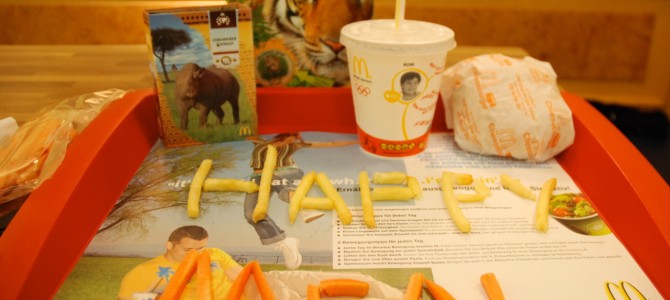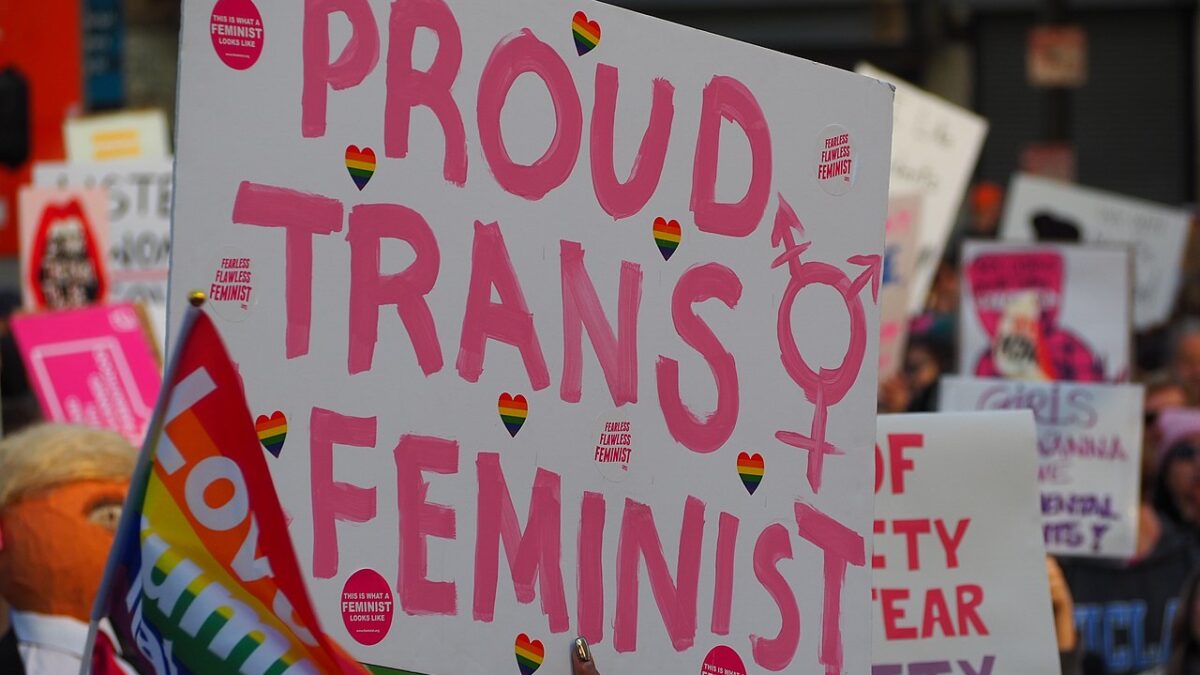
A recent article in Slate by Antonia Ayres-Brown, a junior in high school, details the valiant feminist struggle she ultimately brought to the Connecticut Commission on Human Rights and Opportunities against McDonald’s for … discriminating on the basis of sex in the distribution of Happy Meal toys. “Despite our evidence showing that, in our test, McDonald’s employees described the toys in gendered terms more than 79 percent of the time, the commission dismissed our allegations as ‘absurd’ and solely for the purposes of ‘titilation [sic] and sociological experimentation,'” she wrote.
Let’s leave aside the fact that Connecticut has a Commission on Human Rights and note that this girl sincerely believes McDonald’s offering toys described, at times, as being for a girl or for a boy is a human rights violation.
While I admire the girl’s plucky disposition and effort, I do hope one day she learns to channel her energy into productive uses that will advance her cause in positive ways. This could have all been solved by her parents simply encouraging her to ask for the toy she wants. If girls are continually taught that they as individuals have no power to negotiate a situation as simple as “I’d like that toy” without the Connecticut Commission on Human Rights getting involved, I submit that these women are proving the case that they should not be put in positions of leadership or power.
By the author’s own admission,“McDonald’s is estimated to sell more than 1 billion Happy Meals each year.” Yet it does not occur to her that the fast food worker giving a “girl’s” toy to a girl is simply trying to give the customer what she wants in the most expeditious manner possible. This is a company that sells a billion of these things a year and gets them in the hands of their customers as fast as possible.
People do not eat at McDonald’s to get into a gender studies discussion with the teenage kid at the register; they go there to get food fast, hence the term “fast food.” If the author had worked in fast food for any nominal period of time, she might realize that the employee’s main motivation is not to spend any time persecuting women but to make it through his or her shift as painlessly as possible.
The author predicates her case based on a “concern with the harmful effects of gender-classified toys” but spends no time noting or referencing any data that proves that gender-based Happy Meal toys are harming anyone. If we want women in STEM careers we might want to inform them of the basic premise of the scientific method. She spends no time seeking data to prove her hypothesis and therefore isn’t providing McDonald’s or the reader any scientific reason to change practices. She has gathered data proving that McDonald’s most often allocates gender-based toys to the appropriate gender. This likely was already evident to majority of humans on this planet and in rational circles makes sense.
No data is offered to demonstrate that there is actual harm being done to children when given a toy that often coincides with their personal preference. Her entire assumption is that it offended her so therefore it must have some long term effect on all people. The only long-term effect evident is this child has spent way too much time writing letters to McDonald’s instead of learning to simply ask for the toy she’d prefer.
If there is such a great demand out there of girls who desire the boy-labeled toy, wouldn’t McDonald’s know that? The corporation is known for studying its customer base intensely to move product. That’s the handy thing about capitalism: If parents feel like their children are having a negative experience at McDonald’s; parents will not take their children there. McDonald’s is in the business of giving its customers what they want and logically for their supply chain it makes sense to allocate toys to the appropriate gender. In fact, it would be cheaper for McDonalds to have just one toy available but the company differentiated its product to meet demand for girl-specific toys in Happy Meals.
When I went to McDonald’s as a kid there wasn’t a choice. You did what you were supposed to and fought with your siblings over who got the best toy. There was no campaign to write letters to the CEO of McDonald’s or asking for a different toy. That wasn’t even an option. So basically we have a kid complaining that this company has the audacity to better serve girls instead of sticking girls with the toy their older brother will take because she doesn’t want it.
McDonald’s, like many companies, has realized the buying power of women and has smartly begun to target them. To misinterpret this as a setback is a strange feature of feminism. But much of modern feminism’s main arc seems to be spending time taking gains that women had pocketed already and demonizing them. Followed by the same women wondering why people don’t promote them or take them seriously. You can’t advance women’s voices in the world by spending the majority of your time being embarrassed by basic female preferences. Companies recognizing female preferences and catering to them is now bad in the eyes of modern feminism? That makes no sense.
Girls would be better served learning about the beneficial reciprocity of capitalism and the innate power of just asking for what they want in the first place. McDonald’s will be happy to accommodate them.









